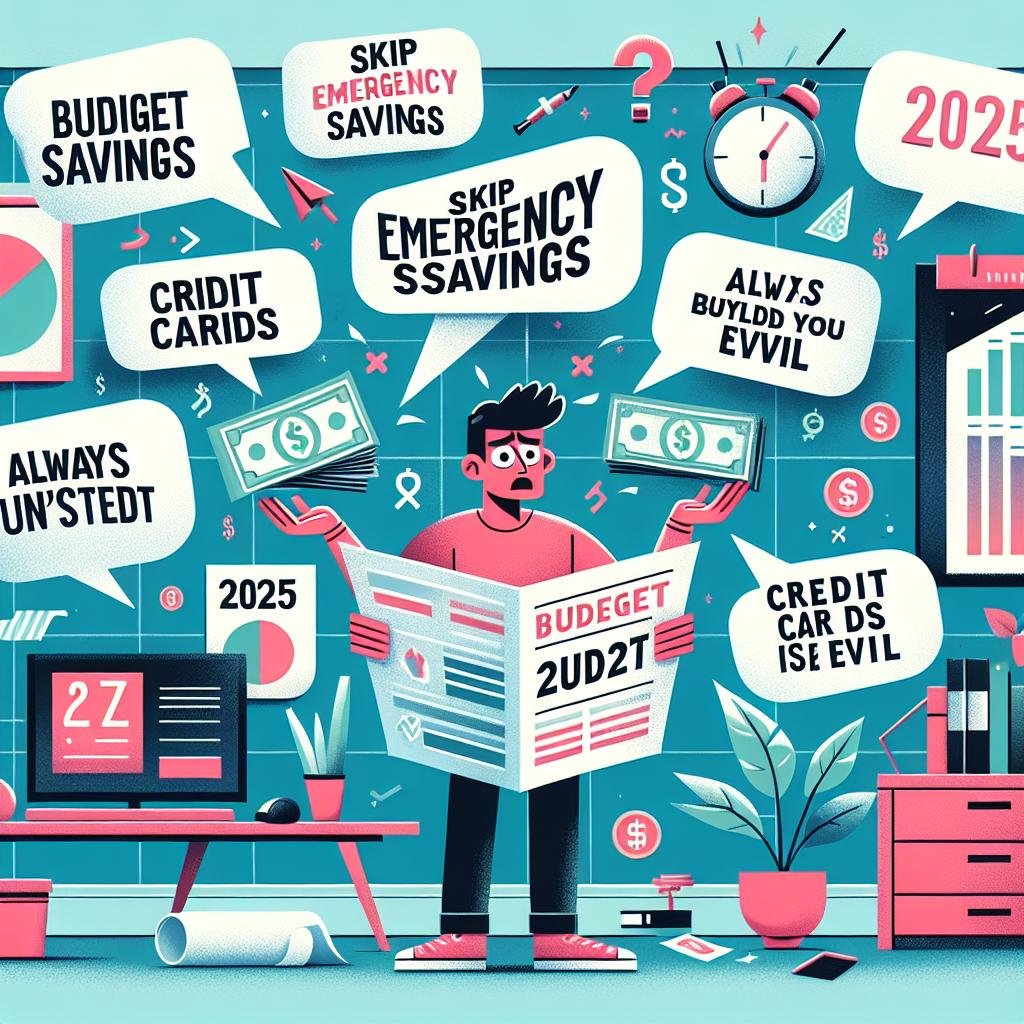
Why Some Traditional Budgeting Advice No Longer Works
Budgeting is a cornerstone of personal finance. But not all budgeting advice stands the test of time. If you’re still sticking to outdated money tips, you could be holding yourself back financially. With rising costs, evolving technologies, and shifting financial priorities in 2025, it’s more important than ever to reevaluate what actually works when managing your money.
In this post, we’ll uncover 7 outdated budgeting tips that financial experts suggest you ignore this year. Whether you’re a personal finance beginner or a seasoned budgeter, avoiding these myths can help you create a smarter, more realistic financial plan.
1. “Stick to the 50/30/20 Budget Rule”
This classic budgeting method suggests spending: 50% on needs, 30% on wants, and 20% on savings. While it’s a straightforward formula, it doesn’t reflect the financial reality of many people in 2025.
With higher inflation and rapidly rising housing costs, many individuals are forced to put more of their income into “needs” than ever before. Experts recommend using this rule as a starting point—not a strict framework. Instead, track your expenses to find a custom budget split that fits your actual cost of living and savings goals.
2. “Limit Coffee and Small Purchases to Save Money”
The infamous “latte factor” suggests your daily coffee is the villain behind your financial woes. But in reality, cutting out $5 a day won’t solve deeper financial challenges like student debt or unaffordable healthcare.
Experts now stress the importance of focusing on big-picture financial moves—think refinancing debt, negotiating bills, or increasing income—over obsessing about everyday indulgences. Small pleasures can often be budgeted for without guilt.
3. “Always Pay Off Your Mortgage Early”
While being debt-free is a worthwhile goal, paying off a low-interest mortgage early may not be the most financially sound decision.
With mortgage interest rates often lower than inflation or average investment returns, your money could yield better growth in a retirement account or investment portfolio. Of course, if financial peace of mind matters more than potential returns, choose what works best for you—but know that early repayment isn’t automatically the best move.
4. “You Must Save 6 Months’ Worth of Living Expenses”
Building an emergency fund is crucial, but setting the bar at six months of living expenses can feel intimidating—especially for lower-income earners or people with high expenses.
Experts generally agree that even saving $1,000–$3,000 can make a big difference in cushioning unexpected expenses. Start small and increase as your income allows. The key is consistency—not perfection.
5. “You Need a Detailed Budget to Be Financially Successful”
If traditional line-by-line budgeting stresses you out, you’re not alone. The truth is, budgeting isn’t one-size-fits-all. You don’t need to track every penny to succeed financially.
Try alternative methods like reverse budgeting (where you save first, then spend the rest) or use budgeting apps that automate expense tracking. The best budget is the one you can actually stick to with consistency and confidence.
6. “Only Use Cash to Control Spending”
The envelope system once ruled personal finance advice. But in 2025, most people operate in a digital economy where cash isn’t always convenient or safe.
Instead, consider using digital banking tools that allow you to allocate funds into separate accounts or use cards with built-in spending limits. You can still control your money—just with a modern twist that works in today’s economy.
7. “Avoid Credit Cards to Stay Out of Debt”
Credit cards often get a bad rap, but avoiding them entirely can actually hurt your credit score and limit your financial flexibility.
Used responsibly, credit cards offer rewards, fraud protection, and the ability to build a strong credit history. Instead of avoiding them altogether, learn how to manage them wisely. Set alerts for due dates, pay your balance in full, and stay within 30% of your credit limit.
Final Thoughts: Build a Budget That Fits Your Life
In a world where financial advice is everywhere, it’s critical to question what still holds up—and what needs to be left behind. These outdated budgeting rules may have once worked, but in 2025, sticking to them can lead to frustration and unrealistic expectations.
Instead, focus on building a financial strategy that fits your lifestyle, values, and goals. Use modern tools, track your progress, and give yourself grace as you grow.
Ready to upgrade your money game? Explore our full library of personal finance guides for practical tips on saving, budgeting, investing, and more!